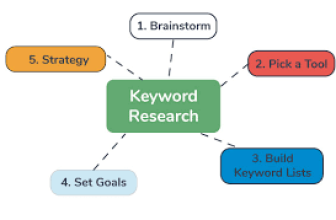
Outline
-
Introduction
- Overview of data entry as a job
- Growing demand for data entry professionals
-
What is Data Entry?
- Definition and role in different industries
- Types of data entry jobs
-
Is Data Entry a Legitimate Career?
- Full-time, part-time, and freelance opportunities
- Companies that hire data entry specialists
-
Types of Data Entry Jobs
- Online vs. offline data entry jobs
- Remote vs. in-office positions
- Transcription and specialized data entry
-
Skills Required for Data Entry
- Typing speed and accuracy
- Attention to detail
- Software proficiency (Excel, Google Sheets, databases)
-
How to Get Started in Data Entry?
- Qualifications and certifications
- Best platforms to find data entry jobs
-
Earning Potential in Data Entry
- Salary expectations
- Factors affecting income (experience, location, skills)
-
Common Scams in Data Entry Jobs
- Signs of fraudulent job listings
- How to avoid scams
-
Pros and Cons of a Data Entry Career
- Advantages of working in data entry
- Challenges and downsides
-
Tips for Success in Data Entry
- Improving speed and accuracy
- Tools and software to enhance productivity
-
Future of Data Entry Jobs
- Automation and AI impact
- Job security and evolving trends
-
Conclusion
- Final thoughts on whether data entry is a valid job
Introduction
Data entry is one of the most common job roles across industries, involving the input, management, and organization of data in digital formats. Many job seekers wonder whether data entry is a legitimate career path or just an entry-level job with limited potential. The truth is, data entry is a valid profession that offers opportunities for full-time employment, freelance work, and remote jobs.
With the increasing digitization of businesses, the demand for skilled data entry professionals continues to grow. However, many scams also exist in the industry, making it crucial to identify legitimate opportunities. This article explores whether data entry is a real job, the types of roles available, required skills, salary expectations, and potential scams to watch out for.
What is Data Entry?
Definition of Data Entry
Data entry refers to the process of inputting, updating, and managing information in digital systems such as databases, spreadsheets, or specialized software. The data may come from physical documents, audio recordings, or online forms.
Industries That Rely on Data Entry
Data entry is a crucial function in multiple sectors, including:
- Healthcare: Managing patient records and insurance claims
- Finance: Processing transactions and maintaining financial records
- E-commerce: Updating product listings and inventory data
- Education: Entering student information and exam results
- Government: Handling public records and legal documents
Is Data Entry a Legitimate Career?
Yes, data entry is a legitimate and widely recognized job role. Many companies require data entry specialists to handle administrative tasks, organize information, and ensure data accuracy.
Types of Employment in Data Entry
- Full-time jobs: Many organizations hire in-house data entry operators for administrative tasks.
- Part-time jobs: Suitable for students or individuals looking for flexible work schedules.
- Freelance work: Platforms like Upwork, Fiverr, and Freelancer offer remote data entry jobs.
- Contract-based work: Some companies hire temporary workers for specific data entry projects.
Types of Data Entry Jobs
Online vs. Offline Data Entry
- Online data entry: Requires an internet connection and involves working with cloud-based systems.
- Offline data entry: Involves entering data into offline software without internet access.
Remote vs. In-Office Data Entry
- Remote jobs: Work from home opportunities where data is entered into company systems.
- In-office jobs: Typically found in corporate offices, banks, and healthcare facilities.
Specialized Data Entry Roles
- Transcriptionists: Convert audio recordings into text format.
- Medical coders: Enter patient diagnoses and treatment details for healthcare providers.
- Captioners: Add subtitles to videos for accessibility purposes.
Skills Required for Data Entry
To excel in data entry, candidates should have:
- Fast and accurate typing skills (40–60 words per minute recommended)
- Proficiency in Microsoft Excel, Google Sheets, and database software
- Strong attention to detail to ensure data accuracy
- Basic knowledge of administrative and organizational tasks
How to Get Started in Data Entry?
Qualifications & Certifications
While formal education is not always required, certain certifications can help:
- Microsoft Office Specialist (MOS)
- Typing speed certification
- Data management or Excel courses
Where to Find Data Entry Jobs?
- Freelance platforms: Upwork, Fiverr, Freelancer
- Job portals: Indeed, LinkedIn, Glassdoor
- Company websites: Directly apply for administrative roles
Earning Potential in Data Entry
Salaries vary based on location, experience, and job type:
- Entry-level: $10–$15 per hour
- Experienced professionals: $20–$30 per hour
- Freelancers: Earnings depend on workload and client rates
Common Scams in Data Entry Jobs
Red Flags to Watch Out For
- Jobs requiring an upfront payment for registration
- Promises of unrealistically high salaries for minimal work
- Employers with no verifiable company information
How to Avoid Scams
- Research the employer before applying.
- Use trusted job platforms.
- Never share personal banking details upfront.
Pros and Cons of a Data Entry Career
Pros
✅ Flexible work options (remote and freelance)
✅ No advanced degree required
✅ Opportunity for career growth in administrative roles
Cons
❌ Repetitive and monotonous tasks
❌ Low-paying entry-level positions
❌ High competition in freelance marketplaces
Tips for Success in Data Entry
- Improve typing speed with online practice tools like TypingClub or Ratatype.
- Learn Excel shortcuts and data management techniques.
- Invest in ergonomic setups to prevent strain from long hours of work.
Future of Data Entry Jobs
With automation and artificial intelligence evolving, traditional data entry roles are shifting. However, specialized roles like transcription and medical coding still require human input. The future of data entry will likely involve more analytical skills and data management expertise rather than simple typing tasks.
Conclusion
So, is data entry a valid job? Absolutely! It is a real, in-demand profession that offers flexibility and career growth. Whether you’re looking for full-time employment, a side hustle, or a remote job, data entry can be a viable career choice. However, be cautious of scams and continuously improve your skills to stay competitive.
FAQs
1. Can I do data entry without experience?
Yes, entry-level jobs require minimal experience. Basic computer and typing skills are enough to start.
2. What is the best platform for finding data entry jobs?
Freelance platforms like Upwork, Fiverr, and job boards like Indeed and LinkedIn are great places to start.
3. Are data entry jobs easy?
While data entry is straightforward, it requires accuracy, speed, and attention to detail.
4. Can data entry be a full-time career?
Yes, many companies offer full-time roles with career growth in administration and data management.
5. How can I increase my earnings in data entry?
Improve typing speed, gain certifications, and specialize in higher-paying fields like medical coding or transcription.








